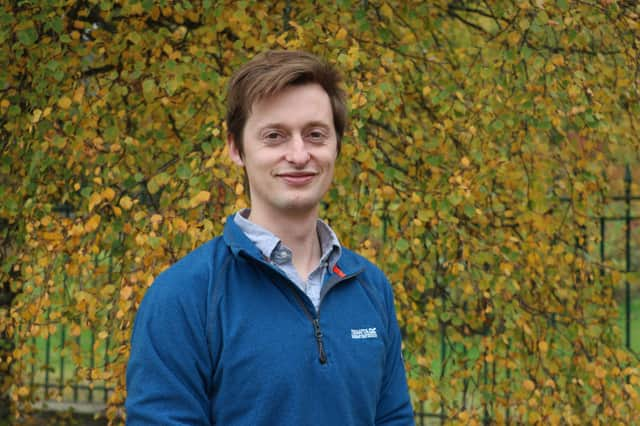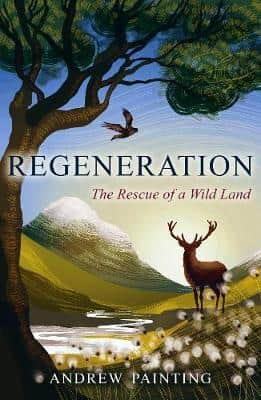Book review: Regeneration, by Andrew Painting


Andrew Painting is assistant ecologist at Marr Lodge Estate in Upper Deeside, a huge tract of some of the wildest and most beautiful land in Scotland. It was acquired by the National Trust of Scotland in 1995 and though the author has been working there for only five years now, this book is a record of what has been attempted and achieved there in the last quarter of a century. As he observes, that is a fairly long time in a man’s life, a very short one in the land’s. The oldest Scots Pine on the estates dates back to at least 1477: “it has seen the loss of the pinewoods from this glen and now is seeing them return.”
The book offers first a detailed account of the work done and projects undertaken at Mar Lodge. Some will, like me, find there is too much detail about daily work; others, more knowledgeable, will be delighted. Even the most cursory reader, inclined to skip chunky paragraphs, will nevertheless find much to enjoy. There is a lot to learn and the learning is satisfying. It helps that Painting, with a degree in English Literature from London University before studying Environmental Anthropology at Aberdeen, writes both clearly and often entrancingly.
Advertisement
Hide AdHe revels in the variety of the huge and magnificent estate; walking round its boundary would take you three days, and be pretty exhausting. The title is apt. What has been done at Mar Lodge is indeed regeneration, but it is more than that. It offers what perhaps has never been: a conscious, even self-conscious, attempt to do more than restore what has been lost or damaged over the centuries; it is to create a place where men and women can coexist in harmony with the natural order. Quite what that might be is not always clear, probably can’t be clear, nature itself not always being harmonious, sometimes even terribly destructive. Only sentimentalists deny that it is also “red in tooth and claw.” It is delightful to watch a fox; not however when he has found his way into a hen-run. And the same may be said about raptors, the pride and joy of conservationists. Having written that sentence, I then have to admit to the pleasure I take in watching our cats stalking a prey.


All the arguments about land ownership, the use to which land is put, rewilding, our relationship with birds, animals, fish and insects are complicated. Painting is too intelligent to deny this. He might like to see changes in sporting practice such as have taken place at Mar Lodge – a change from driven grouse-shoots in favour of walk-up ones and the abandonment of the practice of muirburn, for instance – but he recognizes that field sports will remain part of country life, the question for him being how they are managed.
Management of people who come to the Highlands, to the country anywhere indeed, for recreation is also a question from which he doesn’t shrink. Mar Lodge, being a property owned by the National Trust, is in a special position. Too many visitors to the countryside – and too many idealists, one might add – forget, or are reluctant to accept, that for farmers and landowners their land is a workplace and should be respected as such.
If ecological balance is something desirable but difficult to achieve, as indeed it is, so likewise is the balance between the interest, not only economic but social, of those who live and work on the land and others who visit it. One of the many strengths of this book is that the author is alert to these difficulties.
There is a vast amount of fascinating information here. Even the simplest sentence may invite thought. So, for example, Painting writes: “To understand the Highlands, you need to understand two species above all others: the Scots Pine and the Red Deer. Both species have existed on Mar Lodge for 8,000 years. Both species rubbed along perfectly well for 7,000 of those years.” What of the next hundred, one wonders, let alone the next thousand?
I commend this book strongly. You will learn a lot. You may question some of the matter, but Painting is not dogmatic; he invites you to think and indeed argue.
Regeneration, by Andrew Painting, Birlinn, 306pp, £20
A message from the Editor:
Advertisement
Hide AdThank you for reading this article. We're more reliant on your support than ever as the shift in consumer habits brought about by coronavirus impacts our advertisers.
If you haven't already, please consider supporting our trusted, fact-checked journalism by taking out a digital subscription at https://www.scotsman.com/subscriptions